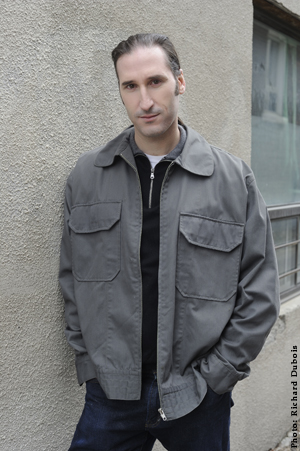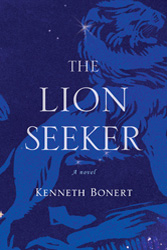Join a community of readers who are committed to Jewish stories
Sign up for JBC’s Nu Reads, a curated selection of Jewish books delivered straight to your door!
The Lion Seeker by Kenneth Bonert spans a twenty-five year period in South Africa. It delves into a Jewish family’s trials and tribulations as they journeyed from being immigrants to striving for advancement during the war-torn period of the 1930s and 1940s.
 Elise Cooper: Why did you decide to write this novel?
Elise Cooper: Why did you decide to write this novel?
Kenneth Bonert: It is an exercise in artistic self-expression. I was interested in my family’s roots and trying to understand myself better. I was curious about why my family went to South Africa. My grandmother, who lived with us, would tell stories on what it was like for her. She had a lot of culture shock coming from the shtetl in Lithuania. I wanted to imagine this and create a novel for it. I named it The Lion Seeker because I envisioned a lion as typical of ambition, glory, and a part of Africa. There are a lot of layers to the symbol of a lion.
EC: Where did Jews fall on the spectrum between whites and blacks?
KB: Jews were considered white, but during the period in the book, the late 1930s, there was a lot of anti-Semitism. This was an era when Fascism was on the rise everywhere. South Africa had the Grey Shirts, a Nazi-type movement that wanted to enter the war on the side of the Germans. Today, South African Jews are very proud of their heritage. I remember going to Jewish schools and growing up in a Jewish environment. Unfortunately, there still existed that feeling that being Jewish drew some form of hatred.
EC: Can you talk about your main character, Isaac Helger?
KB: He is a working-class, uneducated guy. I based him on my uncles who worked in the auto industry in Johannesburg: they were not the most refined. I hope I captured some of their grittiness. Isaac is a complex character who has a side that can be really sweet and another side that reflects the environment he grew up in, an intensely racist one.
EC: Was Isaac a racist?
KB: To portray a white person in South Africa in the 1930s I had to paint him with a racist attitude. This was an era when a black person had to get off the sidewalk when a white person walked by. I wanted to show how this ordinary Jewish family only looked out for themselves. On the pecking order of the social hierarchy they found themselves in a superior position to the blacks; how they handled this is a part of the book.
EC: Throughout the book Isaac’s mother asks, “Are you stupid or clever?” Can you explain?
KB: His mother, Gitelle, is obsessed with this. She is ruthlessly determined to get her South African family out of poverty and to get her sisters out of Lithuania. She is very fixated on getting ahead. The point is to be smart to get ahead and advance the family economically. She tries to instill this philosophy in Isaac. It plays out in the course of the book.
EC: There are a lot of contradictions in the book: black-white, stupid-clever, poor-rich, Jew-Gentile?
KB: Yes there are, but there are a lot of contradictions to Isaac: he does and says things he regrets and then tries to make them right; he is intelligent but often does things that are dumb. South Africa is a country with a lot of contradictions. It is a place of extremes, which I wanted to convey, and the people who live there have many emotional ups and downs.
EC: You just won the Edward Lewis Wallant Award for 2013. You must feel honored?
KB: Yes, past winners have included: Leo Litwak, Chaim Potok, Cynthia Ozick, Dara Horn, and Nicole Krauss. I will be travelling to Hartford for an awards ceremony in the spring. The Lion Seeker was also fortunate to have won a National Jewish Book Award and been shortlisted for the Governor General’s Award here in Canada.
EC: What do you want readers to get out of the book?
 KB: A good story that a person can get lost in. I wanted it to have a complexity so that the reader will think about it and get something out of it. Other than the racist angle no one reads about other South African characters. I see a comparison between the 1930s era and our times, and this is a scary observation. There was the great economic crash and we have our debt crisis; there is also anti-Semitism happening then and now.
KB: A good story that a person can get lost in. I wanted it to have a complexity so that the reader will think about it and get something out of it. Other than the racist angle no one reads about other South African characters. I see a comparison between the 1930s era and our times, and this is a scary observation. There was the great economic crash and we have our debt crisis; there is also anti-Semitism happening then and now.
EC: Is your next book going to be a sequel to this debut book?
KB: I am working on a collection of short fiction that also deals with South African Jews, but more in the modern time. It will be about the Jewish communities spreading from South Africa to all over the world from the past to the present. As for a sequel to The Lion Seeker, I am interested in writing one that will bring the family into modern times.
Elise Cooper lives in Los Angeles and has written numerous national security articles supporting Israel. She writes book reviews and Q and A’s for many different outlets including the Military Press. She has had the pleasure to interview bestselling authors from many different genres.